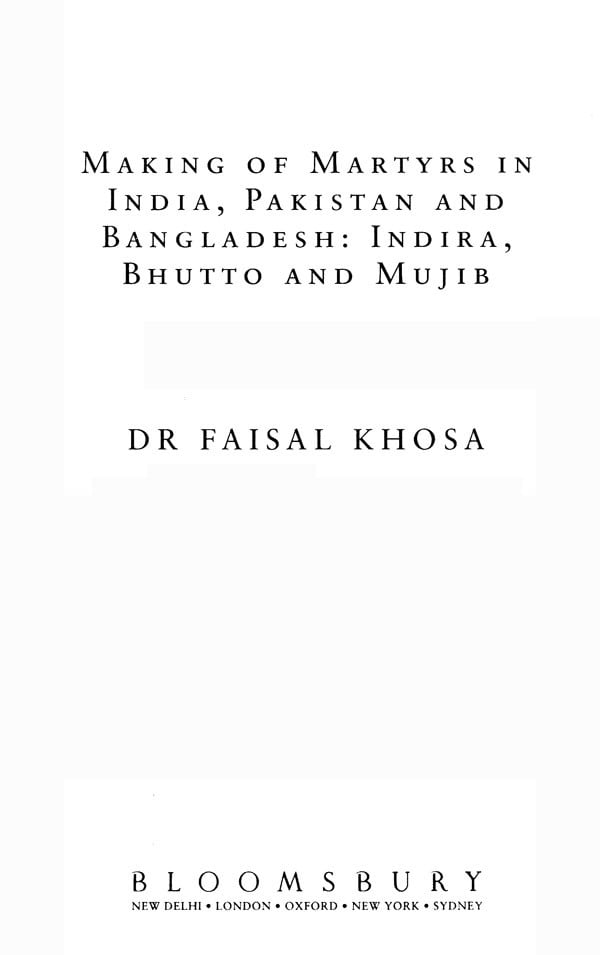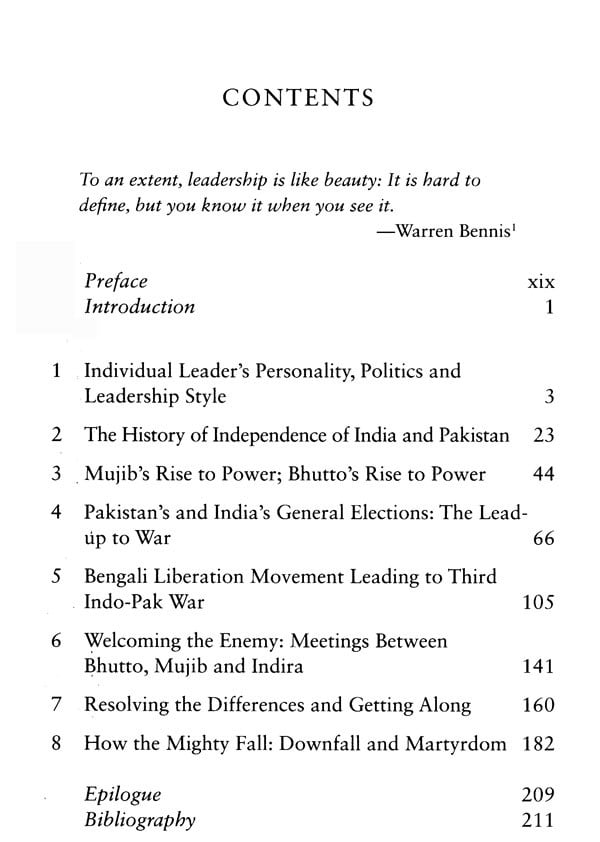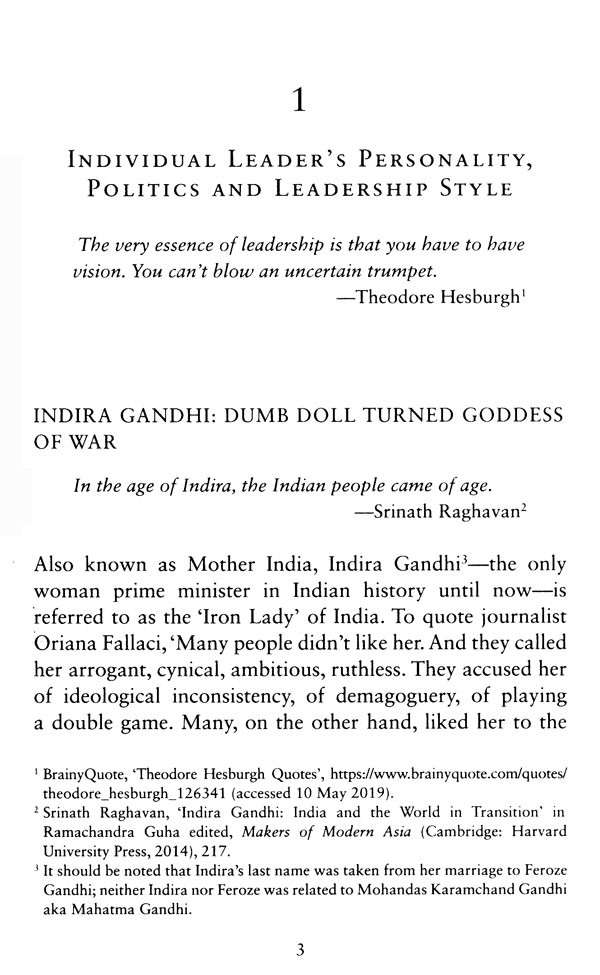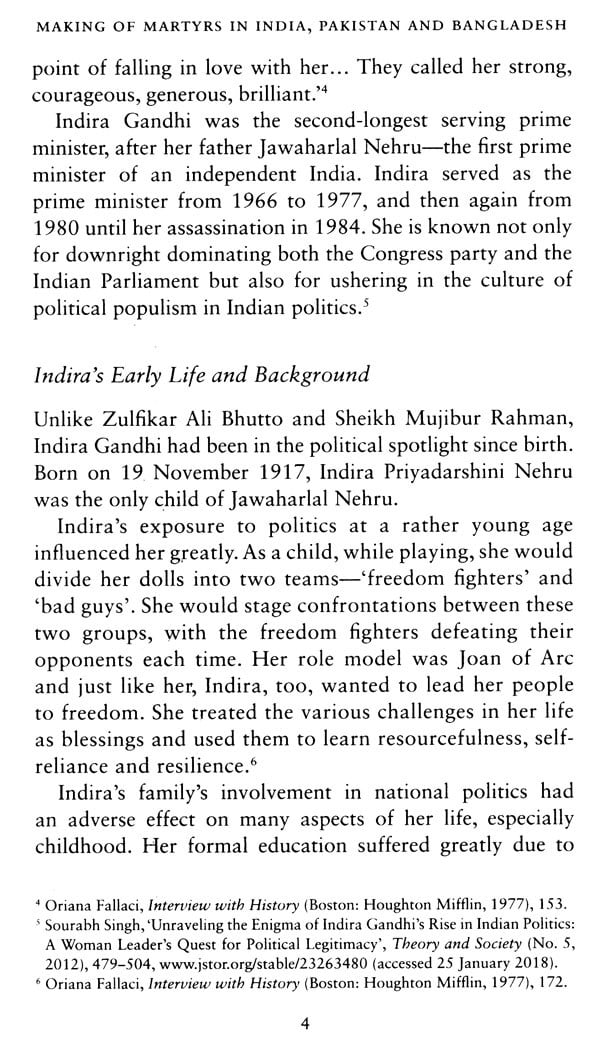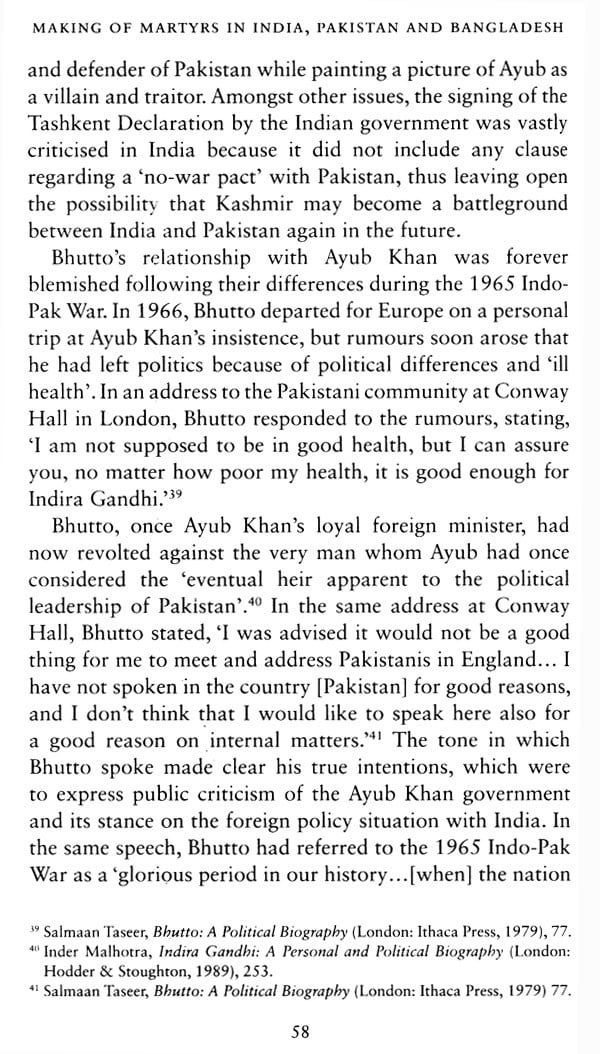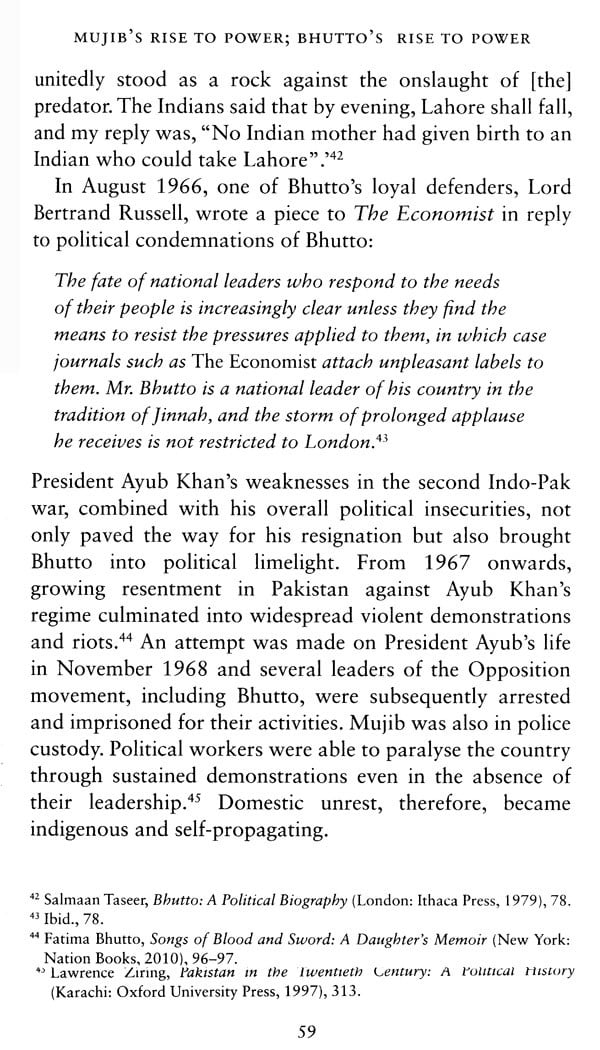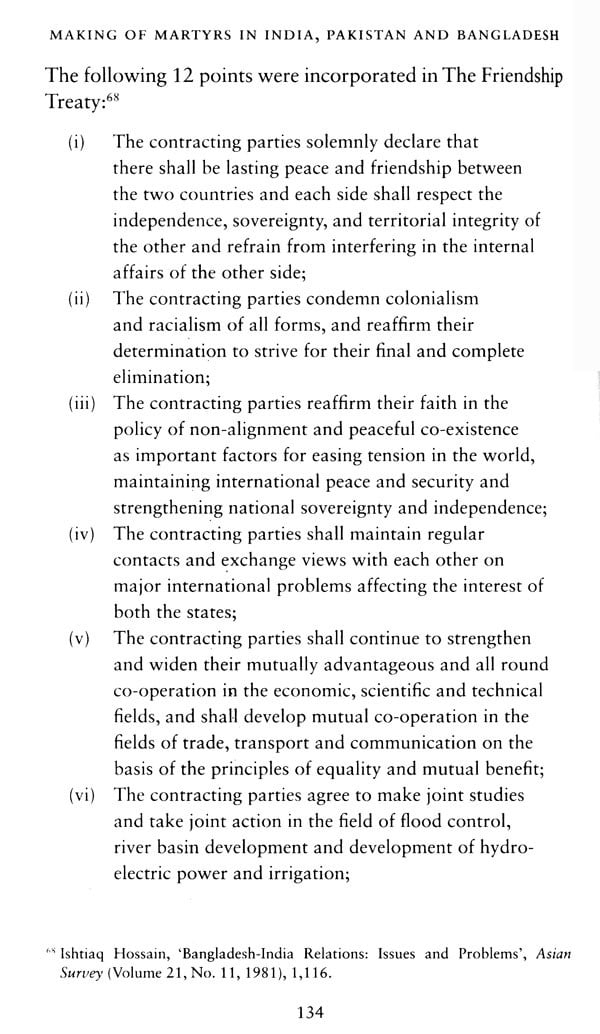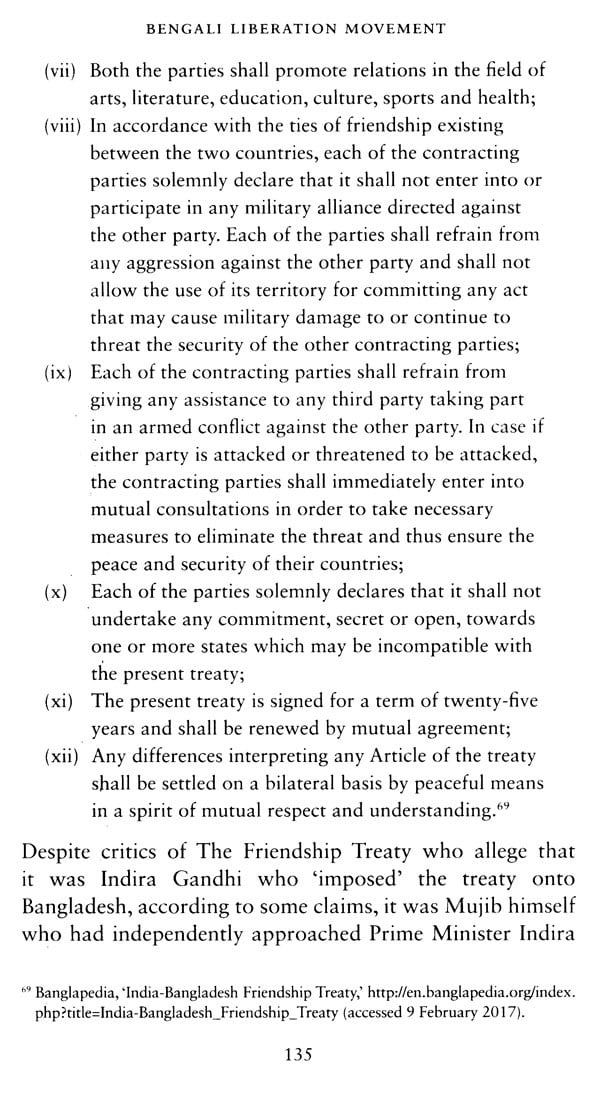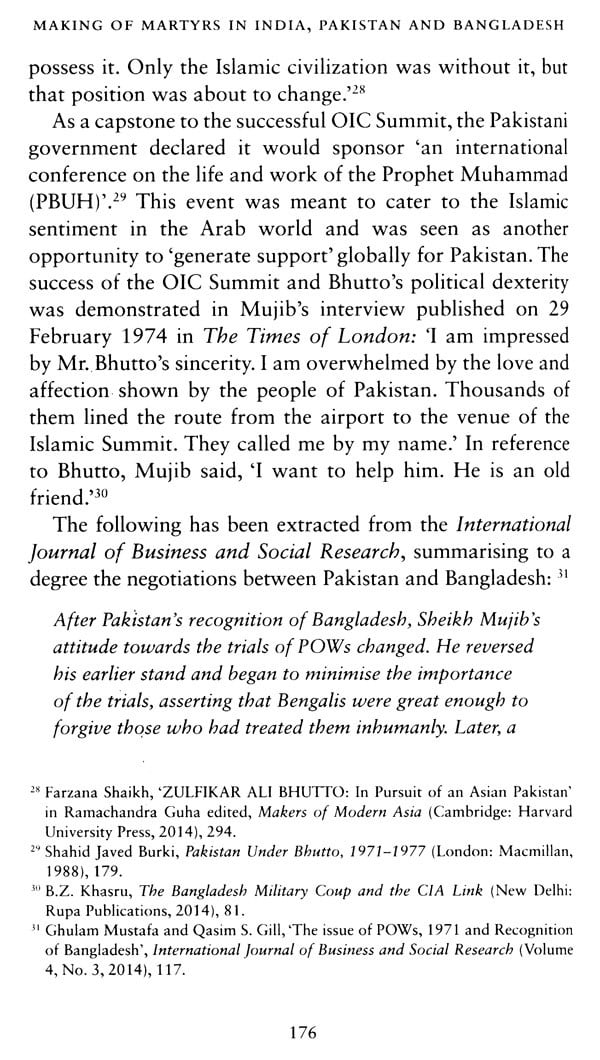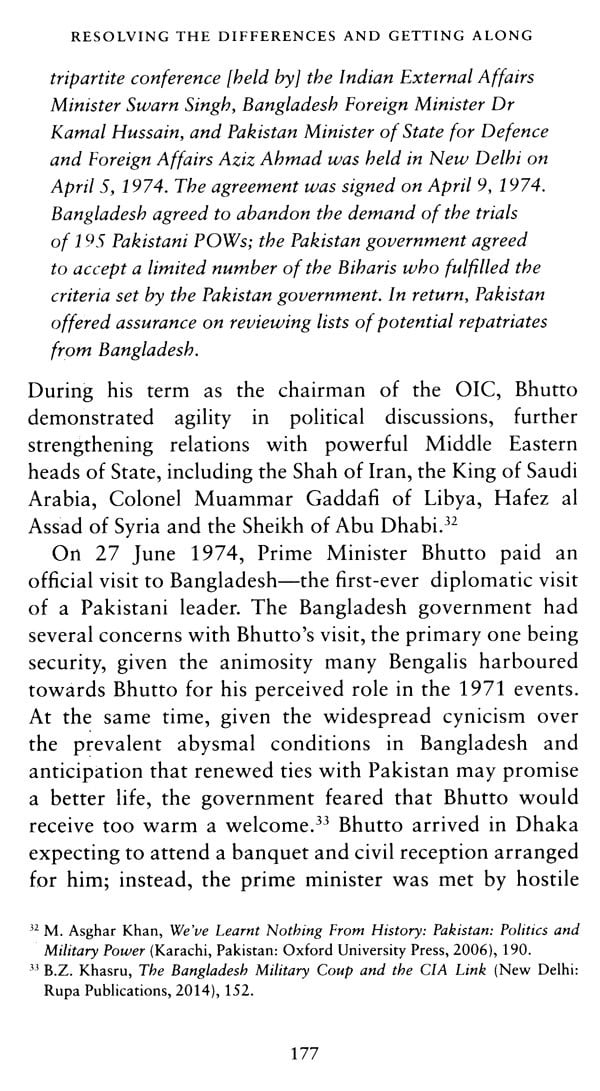About the Book The Making of Martyrs unravels an epic saga of populist politics in the postcolonial Indian subcontinent. Indira Gandhi, Zulfikar Ali Bhutto and Sheikh Mujibur Rahman were towering figures and have been simultaneously loved and hated in equal measure. During their heyday, each of these leaders garnered extraordinary power and charisma. Their followers, admirers and loyal supporters continue to idolize and romanticize them, yet in the eyes of their critics they were ruthless, power-hungry tyrants and partisan villains. These dichotomies remain irreconcilable since their followers venerate them as a model for the future and their critics relegate them to a haunted past.
Drawing on years of research, Faisal Khosa explores the turbulent lives and times of these three leaders and gives us a vivid account of their politics and personalities.
About the Author 'Dr Faisal Khosa has brought a fresh approach to the understanding of three populist leaders-Zulfikar Ali Bhutto, Indira Gandhi and Sheikh Mujibur Rahman. Their interactions and leaderships profoundly influenced the course of South Asian history in the third quarter of the twentieth century. The volume brings this drama to life whose legacy remains influential for the region."
Preface Making of Martyrs in India, Pakistan and Bangladesh: Indira, Bhutto and Mujib examines the influence and controversies surrounding three leaders-Indira Gandhi (1917-1984), Zulfikar Ali Bhutto (1928-1979) and Sheikh Mujibur Rahman (1920- 1975) and their legacies, which continue to fuel political animosities to this day. What is perhaps most interesting are the conflicting stories and accounts of their political roles. Depending on whom one asks, there is always a unique 'Indian', 'Pakistani' and 'Bengali' version of the story, and each story has its own protagonist(s) and antagonists.
This book seeks to connect each of these versions and attempts to provide for arguably the first time-an individual-focused, unabridged and objective political portrait of the three leaders. Drawing on the proverb 'Let him who is without sin cast the first stone', I have refrained from making judgements on their private lives and have intentionally steered clear of discussing their personal failings or family lives, except when it involved incidents that related to or later influenced their politics. My aim is to reveal the political individual in each of these legendary figures as well as compare, contrast and shed light on their roles in shaping the history of their respective nations.
Introduction Three elected leaders of the erstwhile Indian subcontinent have left indelible marks on its politics, and though decades have passed since their deaths; their names still hold political clout. Each of these leaders was tactical and strategic in their rise to power. In other words, they knew how to play the right cards at the right time. Indira Gandhi, Zulfikar Ali Bhutto and Sheikh Mujibur Rahman have been simultaneously loved and hated in equal measure. Their followers, admirers and loyal supporters have idolized and romanticized them, turning them into objects of pathos- remembered as heroes and martyrs. In the eyes of their critics, they were ruthless, power-hungry tyrants-partisan villains who left dark marks on their nations' histories.
The relative nature of public opinion is evident within this historical narrative where the line between reality and misapprehension can be imperceptible and can even change over time. This book, therefore, will work through these conflicting accounts and diametrically opposed opinions in a way that will allow room for its readers to draw their own conclusions. The concept of a complete and objective truth is illusory, clouded by ambivalent evidence and biased perceptions. Our knowledge of any past event can never be complete, for obvious reasons, even if we were at its epicenter. There are at least two sides to every story and the reality of what transpired changes with individual expectations and experience.
**Contents and Sample Pages**
